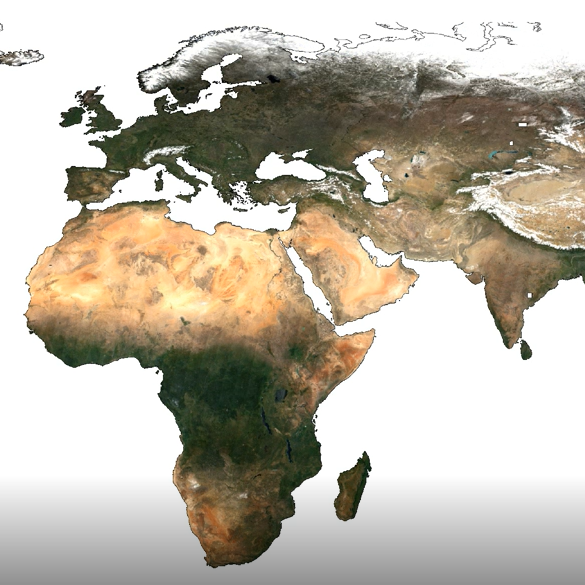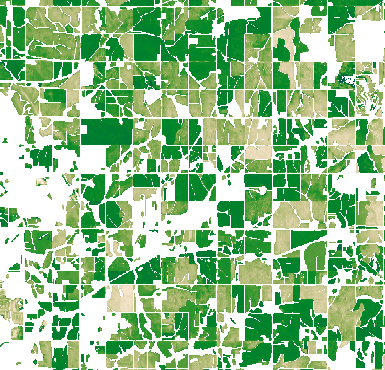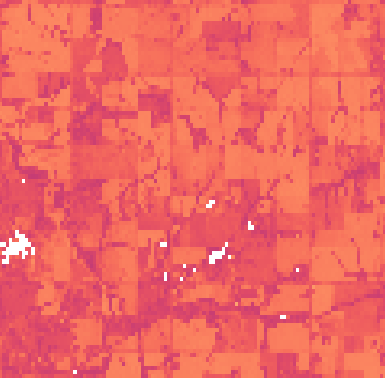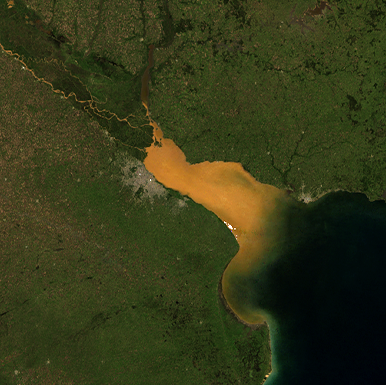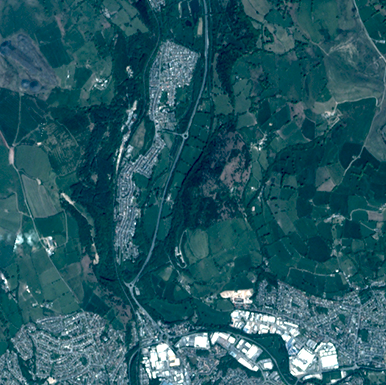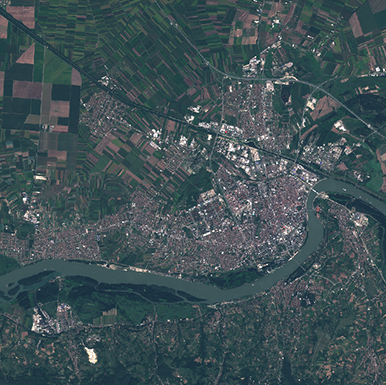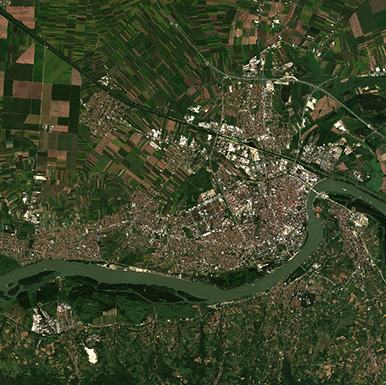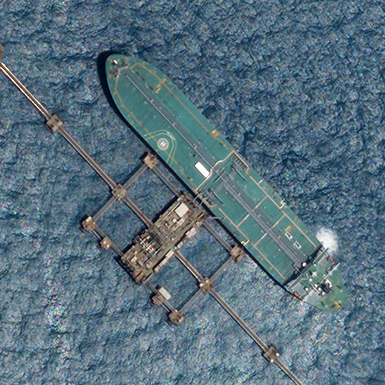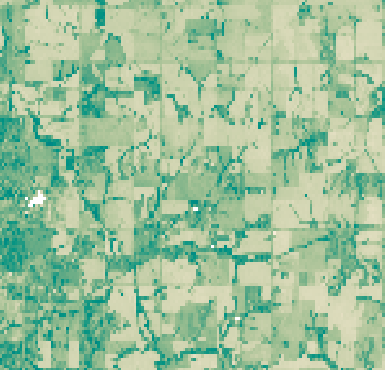About
This registry exists to help people discover and share collections that are available via Sentinel Hub.
- See all usage examples for collections listed in this registry tagged with agriculture
- New: Planet Sandbox Data Collections
Search collections (currently 13 matching collections)
You are currently viewing a subset of data tagged with agriculture.
Add to this registry
If you want to add a collection or example of how to use a collection to this registry, please follow the instructions on the Sentinel Hub Collections GitHub repository.
Unless specifically stated in the applicable collection's documentation, collections available through the Sentinel Hub Collections are not provided and maintained by Sentinel Hub. Collections are provided and maintained by a variety of third parties under a variety of licenses. Please check collection licenses and related documentation to determine if a collection may be used for your application.
Sentinel-2 L2A 120m Mosaic
agriculturemachine learningmulti spectral imageryopen datasatellite imagerysentinel
Sentinel-2 L2A 120m mosaic is a derived product, which contains best pixel values for 10-daily periods, modelled by removing the cloudy pixels and then performing interpolation among remaining values. As clouds can be missed and as there are some parts of the world which have lengthy cloudy periods, clouds might be remaining in some parts. The actual modelling script is available here.
Usage examples
Crop Biomass
agriculturebiomasscommercial dataopen dataplanetary variablessatellite imagery
Crop Biomass provides the ability to track and respond to the highly dynamic nature of biomass in agricultural fields throughout the season. This enables better-informed decisions, input optimization, interventions, and harvest planning. This is a relative measure of biomass, so each pixel value has a value of 0 (low biomass) to 1 (high biomass). The product is provided daily and every day, the user gets a new raster with the data from the most updated direct observation from the day before.
ESA WorldCover
agriculturebiodiversityderived dataland coveropen dataworldcover
The European Space Agency (ESA) WorldCover is a global land cover map with 11 different land cover classes produced at 10m resolution based on combination of both Sentinel-1 and Sentinel-2 data. In areas where Sentinel-2 images are covered by clouds for an extended period of time, Sentinel-1 data then provides complimentary information on the structural characteristics of the observed land cover. Therefore, the combination of Sentinel-1 and Sentinel-2 data makes it possible to update the land cover map almost in real time. WorldCover Map was first produced for 2020 using v100 of the algorit...
Land Surface Temperature
agriculturecommercial dataplanetary variablessandbox datasatellite imagerythermal
Planet’s Land Surface Temperature (LST) is a feed of high-resolution, globally available measurement of the skin temperature of the Earth. Combining observations from a range of satellite constellations, Land Surface Temperature is not hindered by clouds, ensuring a continuous, consistent and scientifically reliable data record of more than 20 years. Consequently, there is no requirement to uphold extensive networks of physical sensors. This Planetary Variable measures the temperature twice a day (daytime and nighttime) with a spatial resolution of 100 m and 1000 m, providing vital intelligenc...
MODIS MCD43A4.006
agriculturecore collectiondisaster responsenatural resourceopen datasatellite imagery
MODIS (Moderate Resolution Imaging Spectroradiometer) is the main instrument operating on both NASA's Terra and Aqua satellites. It acquires images of the earth in 36 bands within the visible and the infrared regions of the spectrum at low to medium spatial resolutions. MODIS is designed to provide atleast daily observations of land, oceans and lower atmosphere that contribute to local or global scale land or water applications. There are several products derived from MODIS which include land, atmosphere, cryospehere and ocean products. MCD43A4 Nadir BRDF-Adjusted Reflectance (NBAR) produ...
PlanetScope
agriculturecommercial datahigh resolution imagerymappingmulti spectral imagerysandbox datasatellite imageryvegetation monitoring
With hundreds of Dove satellites in orbit, PlanetScope Monitoring provides a medium-resolution, continuous, and complete view of the world from above, every day. PlanetScope images are approximately 3 m per pixel resolution. Sentinel Hub offers the ability to purchase, order and access both the archive data and newly acquired data available globally since 2016. Sentinel Hub provides access to PlanetScope data in Top of the atmosphere (TOA) reflectance.
Sentinel-2 L1C
agriculturecore collectiondisaster responsemulti spectral imagerynatural resourceopen datasatellite imagerysentinel
The Sentinel-2 mission is a land monitoring constellation of two satellites that provide high resolution optical imagery and provide continuity for the current SPOT and Landsat missions. The mission provides a global coverage of the Earth's land surface every 5 days, making the data of great use in on-going studies. L1C data are available from June 2015 globally. L1C data provide Top of the atmosphere (TOA) reflectance.
Sentinel-2 L2A
agriculturecore collectiondisaster responsemulti spectral imagerynatural resourceopen datasatellite imagerysentinel
The Sentinel-2 mission is a land monitoring constellation of two satellites that provide high resolution optical imagery and provide continuity for the current SPOT and Landsat missions. The mission provides a global coverage of the Earth's land surface every 5 days, making the data of great use in on-going studies. L2A data are available from November 2016 over Europe region and globally since January 2017. L2A data provide Bottom of the atmosphere (BOA) reflectance.
SkySat
agriculturecommercial datahigh resolution imagerymappingmulti spectral imagerysandbox datasatellite imageryvegetation monitoring
Planet's extensive Skysat archive is available at 50 cm spatial resolution for images collected on or after June 30, 2020, and at 72 cm spatial resolution for images collected before June 30, 2020. The SkySat image archive dates back to 2014. The Skysat satellite constellation consists of ~20 satellites that were launched between 2013 and 2020. Because of its rapid revisit time, these data are suitable for monitoring rapid changes on the Earth's surface.
Soil Water Content
agriculturecommercial datadroughtplanetary variablessandbox datasatellite imagery
The Soil Water Content is the measure of the amount of water present in a unit volume of soil. It is typically expressed as a percentage and represents the ratio between the volume of water and the total volume of the soil. This measurement is crucial for understanding the water status of the soil and provides information on factors such as drought monitoring, soil health and hydrological processes. The Soil Water Content Planetary Variable measures the water content of the soil almost daily with a spatial resolution of 100 m and 1000 m. It is not affected by clouds and has a long and cons...
